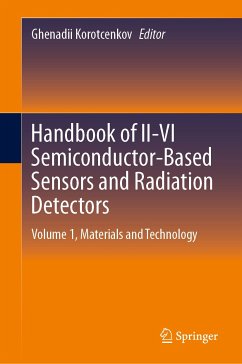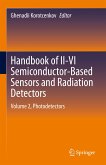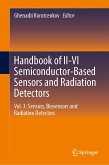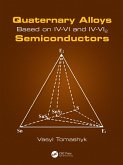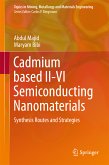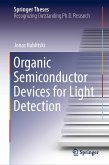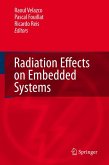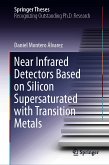Doctor Hubilitate Ghenadii Korotcenkov is Chief Scientific Researcher, Moldova State University, Chisinau, Moldova. He has more than 50 years of research experience in the field of materials science and the development and research of various devices based on semiconductor materials. Until 1995 he studied Schottky barriers, MOS structures, native oxides, and various photoreceivers based on III-Vs compounds such as InP, GaP, AlGaAs, and InGaAs. His current research interests since 1995 include material sciences, focusing on metal oxide film deposition and characterization (In 2O3, SnO2, ZnO, TiO2), surface science, thermoelectric conversion, and design of physical and chemical sensors, including thin film gas sensors. G. Korotcenkov is the author or editor of 45 books and special issues published by Momentum Press, CRC Press, Springer (USA), Harbin Institute of Technology Press (China), Trans Tech Publication (Switzerland) and EDP Sciences (France). Currently he is a series editor of "Metal Oxides" book series published by Elsevier. Since 2017, more than 35 volumes have been published within this series. G. Korotcenkov is the author and coauthor of more than 650 scientific publications, including 31 review papers, 38 book chapters, more than 200 peer-reviewed articles published in scientific journals (h-factor=42 (Web of Science), h=44 (Scopus) and h=59 (Google scholar citation), 2022). His scientific work has been recognized with numerous awards, including an Award of the Academy of Sciences of Moldova (2019), the Prize of the Presidents of the Ukrainian, Belarus, and Moldovan Academies of Sciences (2003) and others. G. Korotcenkov also received a fellowships from the International Research Exchange Board (IREX, United States, 1998), Brain Korea 21 Program (2008-2012), and BrainPool Program (Korea, 2007-2008 and 2015-2017).
Introduction in II-VI semiconductors.- (general view, history).- Cd-based II-VI semiconductors.- (CdSe, CdS, CdTe, structure, optical properties, luminescence, electrical conduction, photoconductivity).- Zn-based II-VI semiconductors.- (ZnSe, ZndS, ZnTe, structure, optical properties, luminescence, electrical conduction, photoconductivity).- Hg-based II-VI semiconductors.- (HgTe; HgS; HgSe, structure, elecrophysical propertie).- Ternary II-VI compounds.- (CdZnTe, HgCdTe, HgZnTe).- Bandgap engineering.- Synthesis of II-VI semiconductors.- (single crystals, polycrystals, wet chemical synthesis, features, crystallite sizes, sintering),.- Thin films of II-VI semiconductors.- (features, deposition, characterization).- Epitaxial growth of II-VI semiconductors .- (approaches, deposition, characterization).- Doping of II-VI semiconductors.- (approaches, limitations, p-n junction forming, characterization).- Schottky barriers and ohmic contacts to II-VI semiconductors.- (formation, approaches, parameters, limitations).- Patterning of II-VI semiconductor films.- (etching: wet, dry).- Stability of II-VI semiconductors.- (thermal, temporal, stabilization, surface passivation).- Colloidal II-VI semiconductor-based nanoparticles.- (quantum dots, synthesis, stabilization).- 1D II-VI semiconductor-based nanomaterials .- (nanowires, nanobelts, etc. synthesis, characterization).- 2D II-VI semiconductor-based nanomaterials .- (nanoflakes, nanosheets, etc., synthesis, characterization).- 3D II-VI semiconductor-based nanomaterials .- (core-shells, spherical, hierarchical structures, etc., synthesis, characterization).- .- Introduction in IR detectors.- (Classification, Infrared Detector Market, materials, HgCdTe, limitations, applications).- Photoconductive and photovoltaic IR detectors .- (HgCdTe, HgZnTe, high operation temperature (HOT) IR detectors, sensor design, p-n junction, barrier photodetectors, characterization, performances, application, advantage, disadvantages).- Avalanche photodiodes for IR spectral region .- (HgCdTe, p-i-n, principles of operation, fabrication, performances, application, advantage, disadvantages).- Photoelectromagnetic (PEM) detectors, magnetoconcentration detectors, and Dember effect IR detectors.- (design, characterization, performances, application, advantage, disadvantages).- Quantum Cascade and Quantum well IR Detectors.- (HgCdTe, design, fabrication, characterization, performance, application, advantage, disadvantages).- IR detectors array.- (photoconductive array, photodiode array, design, array technology, fabrication, performance, application).- Nanomaterial-based IR detectors.- (HgTe, HgSe, QDs-based IR detectors, nanocrystals, colloidal, 1D and 2D structures).- CdSe-based photodetectors for visible-NIR spectral region.- (all types of detectors, including nanomaterials (thin films, 1D, 2D, 3D, QDs, colloidal, nanocrystals), design, fabrication, performance, application).- CdTe-based photodetectors for visible-NIR spectral region.- (all types of detectors, including nanomaterials (thin films, 1D, 2D, 3D, QDs, colloidal, nanocrystals), design, fabrication, performance, application).- CdS-based photodetectors for visible-UV spectral region.- (all types of detectors, including nanomaterials (thin films, 1D, 2D, 3D, QDs, colloidal, nanocrystals), design, fabrication, performance, application).- Photodetectors for visible spectral range based on ternary and.- multinary alloys of II-VI semiconductors.- (ZnSTe, CdZnTe, ZnSeTe, etc., design, fabrication, performance, application).- Introduction in UV detectors.- (Principles of operation, materials used, classification, applications).- Schottky barrier-based and heterojunction-based UV detectors.- (ZnS, ZnSe, design, fabrication, characterization, performance, application, advantage, disadvantages).- Avalanche UV photodiodes.- (ZnS, ZnSe, p-i-n, design, fabrication, characterization, performance, application, advantage, disadvantages).- Nanomaterial-based UV photodetectors.- (ZnS, ZnSe, 1D, 2D, 3D, QDs, design, fabrication, characterization, performance, advantage, disadvantages).

